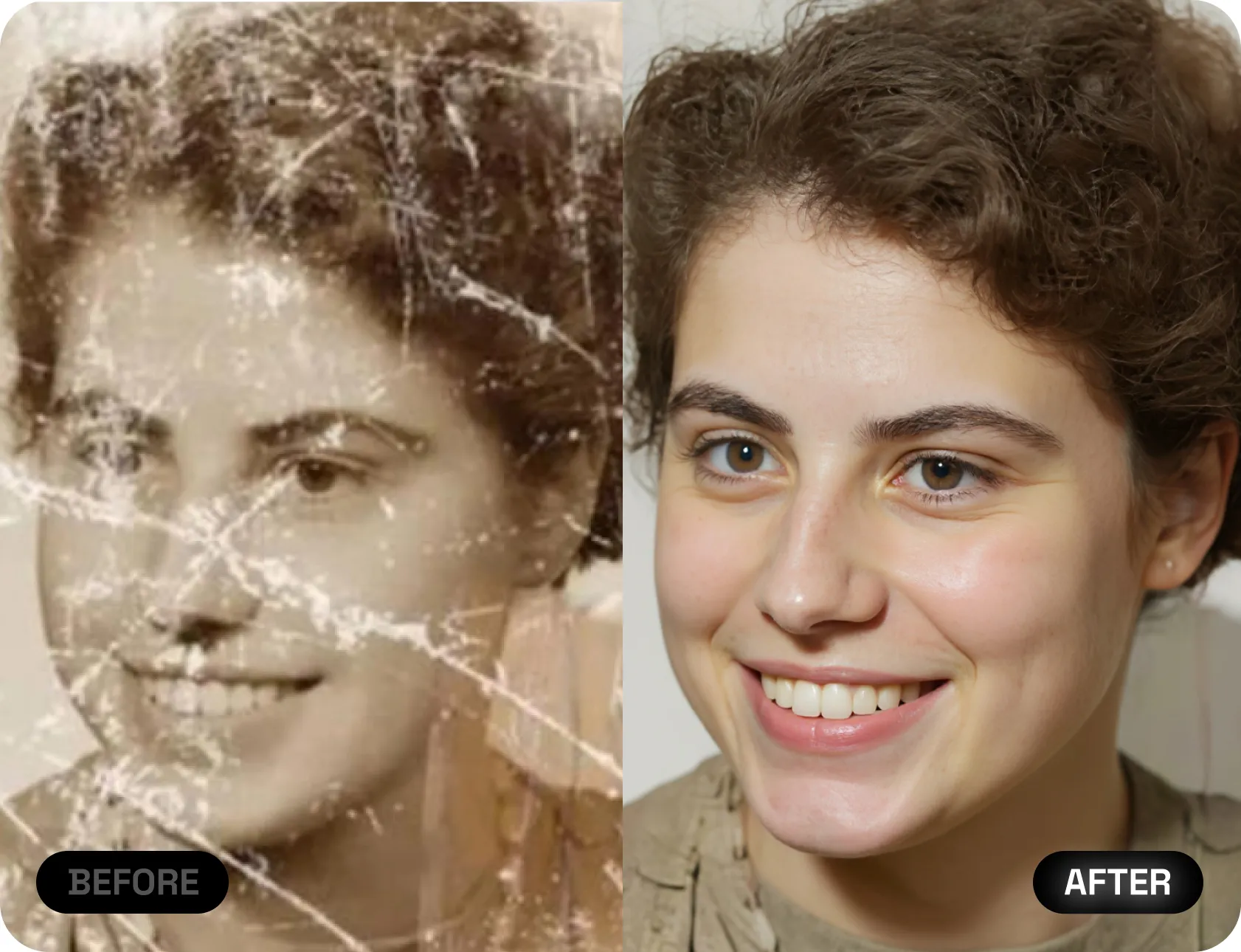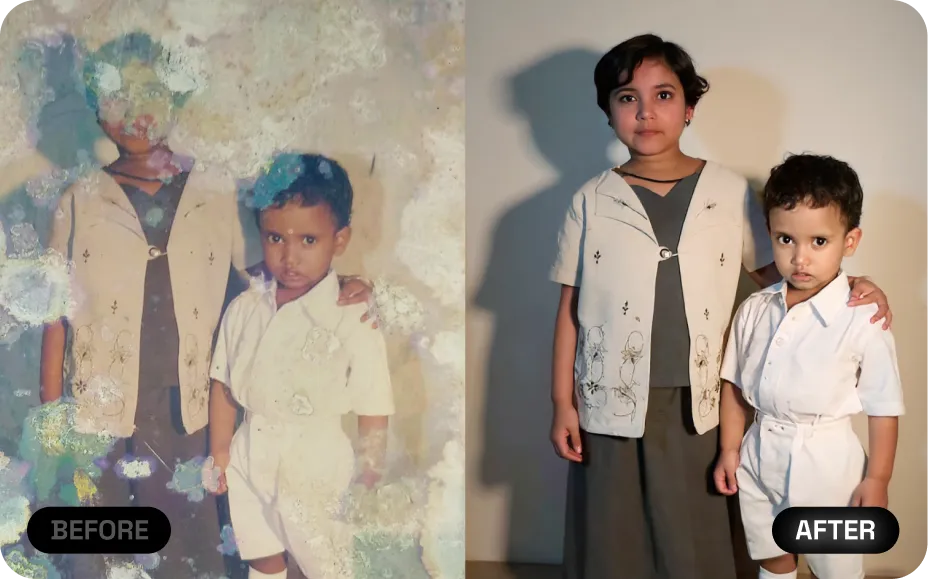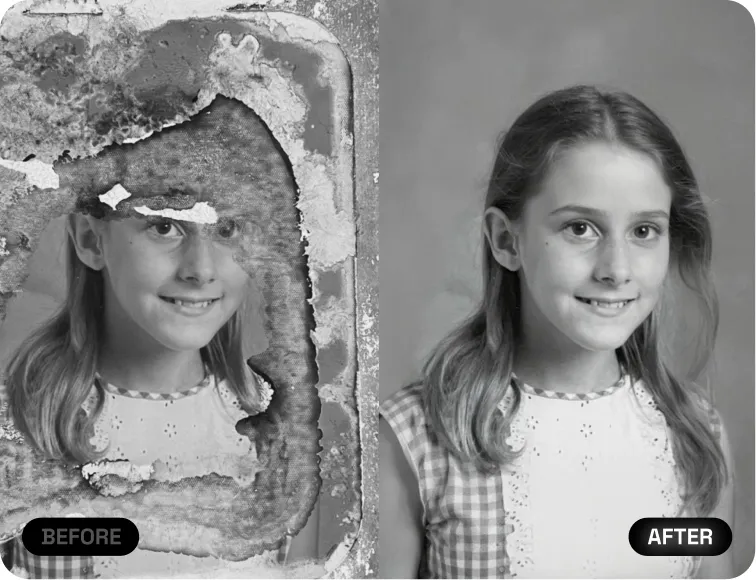How to Restore Old Family Photos with AI (No Photoshop Needed)
Step‑by‑step guide to restore old, faded, or damaged family photos in seconds with AI‑powered Restory.pics – no Photoshop skills required.

How to Restore Old Family Photos with AI (No Photoshop Needed)
Bring memories back to life in <10 seconds using Restory.pics.

Old printed photographs often fade, crack, or collect scratches over decades. Traditional restoration requires hours in Photoshop—or hiring a professional. Restory.pics uses cutting‑edge AI models to repair damage, sharpen details, and even colorize black‑and‑white photos automatically. All you need is an internet connection and the photo you want to revive.
Table of Contents
- Step‑by‑Step Guide
- Why Use AI Instead of Manual Editing?
- Best Practices for Perfect Results
- Restoring Multiple Photos in Bulk
- Frequently Asked Questions
1. Step‑by‑Step: Restore Your Photo
Step 1 – Scan or Photograph the Original
Use a flatbed scanner at 300–600 dpi for best clarity. If you only have a phone, shoot in bright, even lighting and keep the lens parallel to the photo.
Step 2 – Upload to Restory.pics
Drag‑and‑drop your file or paste an image URL. We accept JPG, PNG, TIFF up to 25 MB.
Step 3 – Pick a Mode
- Damage Repair – removes scratches, tears, stains.
- Colorize – adds natural color to black & white shots.
- One‑Click Restore (+ Color) – combines both in a single pass.
Step 4 – Click “Restore”
Our AI runs on high‑performance GPUs; typical processing time is under 10 seconds.
Step 5 – Download & Share
Download the high‑resolution PNG/JPG or save it to your personal gallery. Share with family, print, or frame!

2. Why Use AI Instead of Manual Editing?
- Time‑Saving – Hours of meticulous clone‑stamping done in seconds.
- No Expertise Required – Perfect for non‑designers and busy genealogists.
- Consistent Quality – Machine‑learning models trained on millions of restorations ensure professional results every time.
- Preserves Original Character – Restory’s algorithms target the damage, leaving authentic grain and tone intact.
For a deeper dive into the tech, check our AI Restoration Technology explainer.
3. Best Practices for Perfect Results
Choose the Highest‑Quality Source
The AI can’t invent detail that never existed. A clear 600 dpi scan will always beat a dim phone photo.
Avoid Over‑Compression
Upload the original scan, not a social‑media compressed copy. JPEG artifacts can confuse the model.
Keep a Backup
Restory never overwrites your original file; still, it’s smart to store your scans in a digital archive or cloud drive.
Use Side‑by‑Side Comparison
Our interface shows Before and After sliders—perfect for judging subtle repairs.

4. Restoring Multiple Photos in Bulk
If you have shoeboxes of photos, manually uploading one by one can be tedious. Restory’s Bulk Mode processes up to 100 images in a single batch while you grab coffee.
- Zip your scanned photos into one archive (or select multiple files).
- Upload via Bulk Mode.
- Choose “Restore + Colorize” for everything (or per‑file settings).
- Download a ZIP of all restored images once processing completes.
5. Frequently Asked Questions
Is there a free trial?
Yes! Every account gets 1 free restoration credit. No card required.
What formats do you support?
JPG, PNG, and 16‑bit TIFF. Maximum resolution: 8K.
Is my data private?
We delete images after 30 days or immediately on request. Read our Privacy Policy.
Why did my restoration fail?
Check that the file isn’t corrupted and under 25 MB. If the photo is extremely low‑resolution (<200 pixels width) the AI may not have enough detail.
Next Steps
Ready to bring your family history back to life? Upload your first photo now and see instant magic.